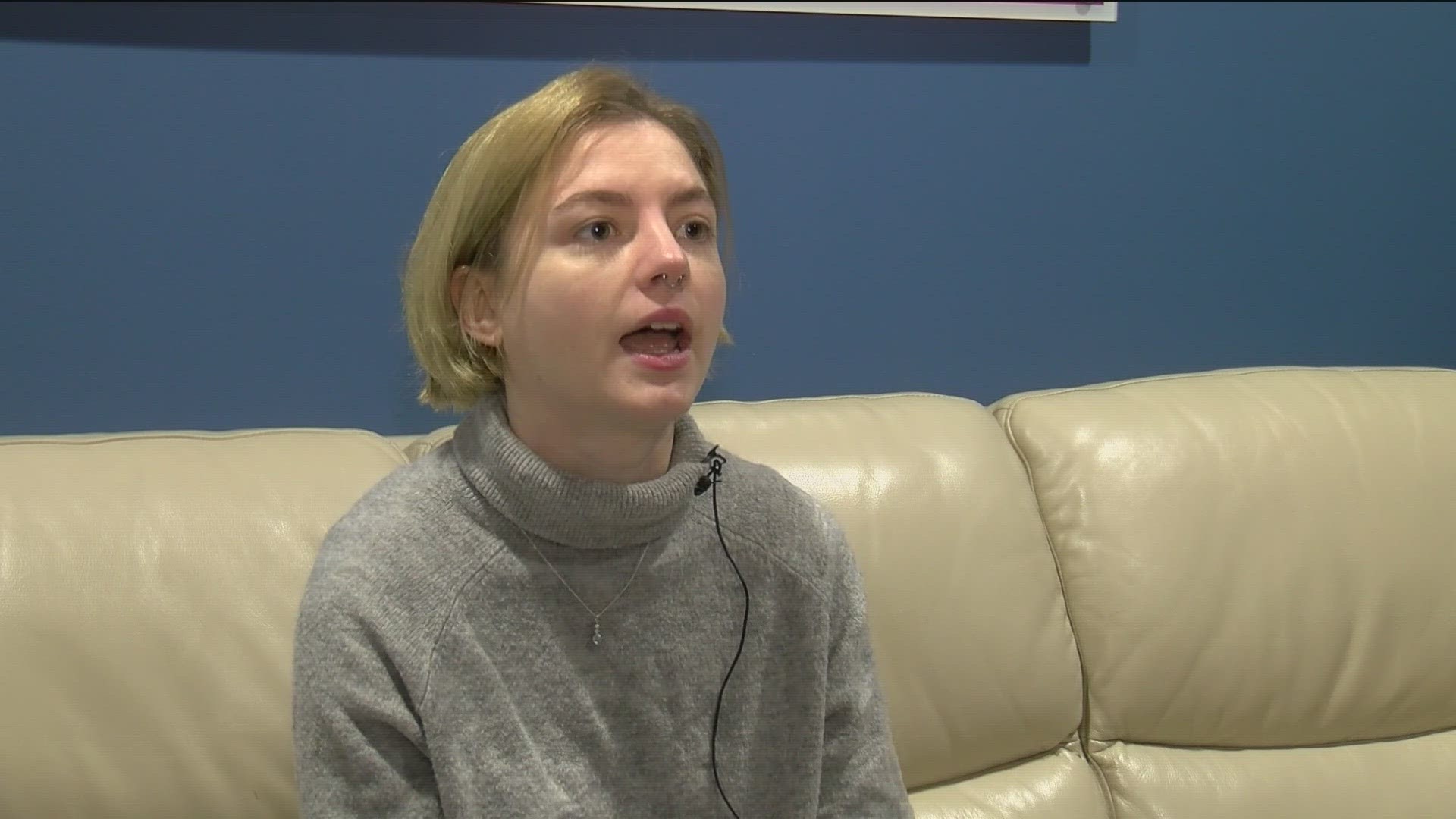TOLEDO, Ohio — Ohio Gov. Mike DeWine said after 10 days of visiting children's hospitals, talking with doctors and hearing from children currently being treated with gender-affirming care, his decision to veto House Bill 68, which would have banned gender-affirming care for minors and transgender athletes’ participation in girls and women’s sports, came down to protecting life.
"I've been told by people who are now grown adults, that if not for this care, they would have taken their lives when they were teenagers," he said Friday.
For Equality Toledo's Executive Director Jordan McQueary, who had already drafted a press release in case DeWine signed the bill, the governor's conclusion came as a surprise.
"I was kind of shocked but really excited," McQueary said. "I think this marks a turning point for us at least, to see our governor listening to medical professionals, to the families that are directly impacted by this. It was really great to see that he was listening."
Democratic State Sen. Paula Hicks-Hudson echoed McQueary's sentiments in a statement released Friday.
"Today, the governor, after a thoughtful review of the facts and listening to the experts, decided to veto this ill-intended legislation," her statement reads. "I am grateful that he saw what I saw from the Ohio citizens who came and testified against this intrusive legislation."
But Republicans in the Ohio House and Senate who fought for the bill, like Sen. Teresa Gaverone, or Rep. Josh Williams, said the DeWine's decision was a miscalculation.
"I think it's out of touch with what Ohioans want," Williams claimed. "We've looked at polls by multiple reputable sites showing that an overwhelming majority of people here don't support transitioning kids or allowing males to play in girls or women's sports."
The governor's veto came with three caveats:
- establishing administrative rules to ban gender reassignment surgeries for anyone younger than 18
- establishing reliable reporting to measure the effects of gender-affirming care over time
- banning "fly-by-night" transition clinics that would offer rushed treatment without adequate counseling
"[DeWine has] some things he still wants to address, but because he's willing to work with us, it should be smooth sailing," McQueary said.
After DeWine's veto, the bill returns to the legislature, and Williams said the fight to pass it is not over yet.
"[DeWine] wants to have his cake and eat it too, and he wants to pull power from the executive branch," Williams said. "We will have discussions in caucus about whether or not to move forward with a veto override, which I expect will happen in the early months of 2024."
When asked about the portion of the bill that sought to ban transgender athletes’ participation in girls and women’s sports, DeWine said it affects such a small portion of athletes in Ohio that he put his singular focus on the larger aspect of gender-affirming care for youth.
According to Doug Ute, director of OHSAA, as of December, there are 20 transgender girls participating in high school sports in the entire state.

